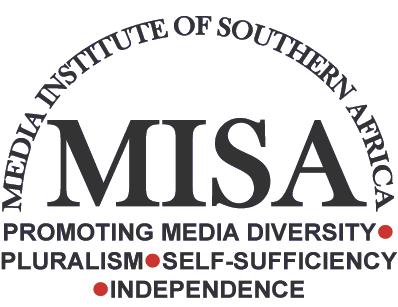MISA PR | Tips for Journalists: How to protect oneself when covering volatile events
Published on August 18, 2011 at 10:13 AM by FACE OF MALAWI
PRESS STATEMENT FOR IMMEDIATE RELEASE (16/8/2011)
Tips for Journalists: How to protect oneself when covering volatile events
The Media Institute of Southern Africa (MISA) Regional Secretariat is always saddened by reports of violence against journalists as they pursue their noble profession of reporting on and covering events that shape and redefine the country.
MISA is aware that journalists are always at risk of incurring violence as they do their jobs, as was the case in point when the Malawian Police injured 25 journalists and killed 19 unarmed protesters whilst further shooting 58 more people during July Demonstrations.
The frustrations of people everywhere is something that cannot be muted and it is the responsibility of the journalist to make sure that these cries do not fall on deaf ears, as part of the citizens’ basic right to access resources is access to information. And the journalist enables this right.
Therefore, because of this vital role that journalists play in our society, it is important to safeguard their wellbeing when performing their duties. MISA would like to state that, if the government won’t provide this safeguard, the journalists themselves have a duty to ensure that they protect themselves, especially when covering violent and volatile situations, so that they better echo the truths that they find in the chaos.
Therefore, listed below are tips that Journalists @ Risk give that might help journalists better protect themselves when covering highly volatile situations.
- Be physically and mentally prepared.
- Know the background of the people and place of assignment and of the dispute.
- Do not move.
- Inform your headquarters and colleagues of where you are going, your intended ETA and expected return. Check in frequently.
- Meet unfamiliar contacts in public places and tell your office or trusted colleague your plans.
- Never carry a weapon or travel with journalists who do. Be prudent in taking pictures. Know local sensitivities about picture-taking.
- Carry picture identification. Do not pretend to be other than a journalist. Identify yourself clearly if challenged.
- Carry cigarettes and other giveaways as sweeteners. Stay calm and try to appear relaxed if police or locals appear threatening. Act friendly and smile.
- Carry emergency funds and a spare copy of your ID in a concealed place such as a money belt. Have a giveaway amount ready to hand over.
- Keep emergency phone numbers at hand, programmed into satellite and mobile phones, with a key 24/7 number on speed dial if possible. Know the location of hospitals and their capabilities.
- Stay alert at all times, even after fighting or explosive event.
- NEVER ASSUME – PERIOD.
- Know your rights, internationally and locally.
- Journalists who have endured high danger and witnessed dreadful events may experience traumatic stress in later weeks. Do not be embarrassed to seek counseling.
However, even though the aforementioned tips might aid in safeguarding the journalist’s wellbeing, it should be noted that most effective tool that the journalist has at his/her disposal is his keen sense and ability to asses any given situation so as to determine the risk factor and how the journalist can better cover and report on the event.
Should you find yourself in a dangerous situation and in need of assistance, contact your local MISA chapter:
MISA Malawi MISA Regional Secretariat
P.O. Box 30463 Private Bag 13386
Lilongwe 3 Windhoek, Namibia
Tel: +265 (0) 1 754 310 Tel: +264 61 232975
+265 (0) 1 758 091 Fax to e-mail: 088622208
Fax: +265 (0) 1 758 091 Fax: +264 61 248016
misama@globemw.net E-mail: alerts@misa.org
Ends
Subscribe to our Youtube Channel:
